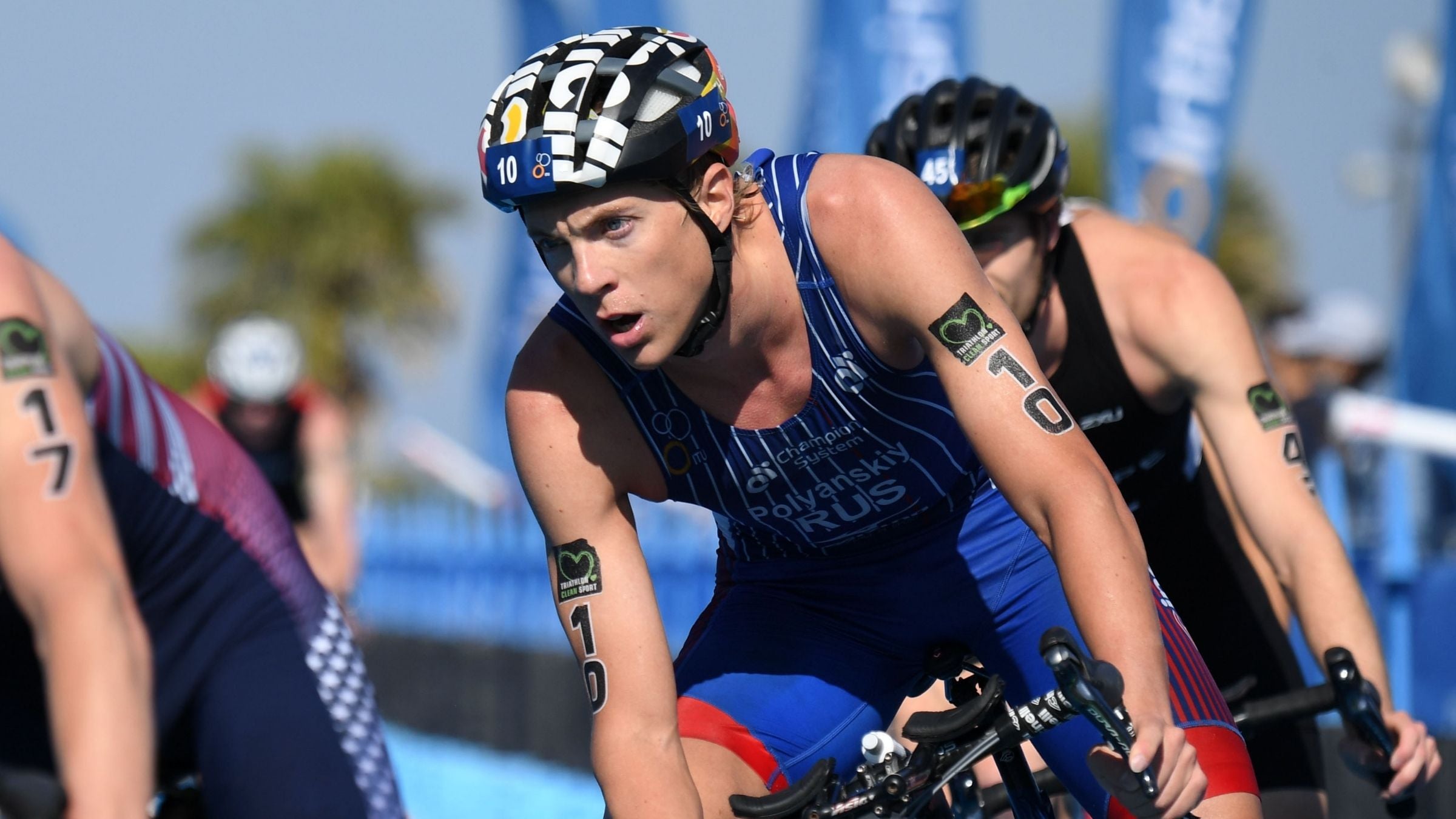World Triathlon Announces Sanctions of Russian Federation

Igor Polyansky of Russia rides during the ITU Triathlon World Cup on November 10, 2018 in Miyazaki, Japan. (Photo: Delly Carr/Getty Images)
The executive board of World Triathlon (formerly the ITU) announced today sanctions against the Russian Triathlon Federation, due to “the significant number of doping cases in Russia,” according to the statement. This comes in the wake of two Russian triathletes receiving three-year suspensions last month after testing positive for erythropoietin (EPO).
The sanctions, which will last one year, include requirements that the Russian Triathlon Federation:
- Test all Russian athletes, especially those racing internationally
- Create an education plan regarding anti-doping issues for coaches and athletes
- Compensate and refund the prize money won by the previously sanctioned Russian athletes
- Reimburse World Triathlon all costs related to those doping offenses
- Have their officials resign from any and all World Triathlon and European Triathlon boards, and be not allowed to host events
- Sanction internally any coaches or officials involved with the doping offenses, and cooperate with World Triathlon
The board said it will review compliance with these measures quarterly.
If this sounds familiar, it’s because Russian federations have faced these large-scale bans before. Going into the 2016 Rio Olympic Games, the International Olympic Committee (IOC) left the decision to each individual sport in the wake of an overwhelming whistler-blower report that showed systematic doping cover-ups throughout the Russian federations and during the 2014 Sochi Olympics. Track and field, for instance, banned all Russian athletes but one from participating in Rio. Triathlon, however, allowed all six Russian triathletes to compete in those Olympics, as they were not among the four triathletes named in the McLaren report. (Two of those athletes are now the two facing three-year bans for EPO positives.)
Since then, the IOC did institute an official ban from Olympic competition—not that that stopped Russian athletes from winning lots of medals in Tokyo under a different name, “the Russian Olympic Committee.”
Russian triathlete Igor Polyanskiy, who competed in both Rio and Tokyo, became the first athlete to be formally DQ’d from Tokyo after testing positive for the presence of EPO in his urine and blood samples from July 21. He placed 43rd in the individual race and the ROC (Russian) relay team placed 14th. Both results were disqualified and he received a three-year ban.
It was then later announced that his teammate Alexander Bryukhankov, a four-time Olympian, tested positive for EPO at the European Triathlon Championships on June 19, and also received a three-year ban.
Russian athlete Vladimir Turbayevskiy also received a suspension in August for abnormalities in his biological passport, including indications of blood manipulation. It was the first case in World Triathlon history of abnormalities in a biological passport—a system that is used to monitor biological markers over time as a more thorough indicator of doping or manipulation.